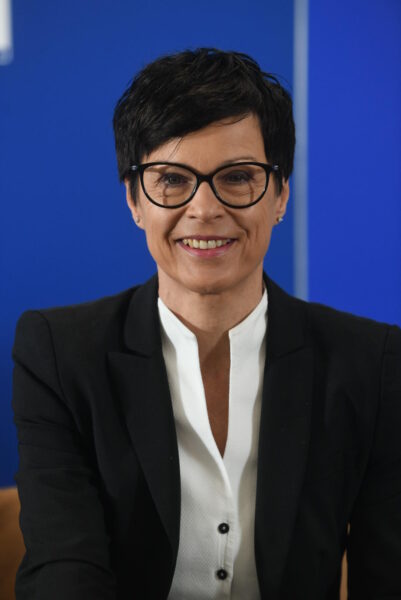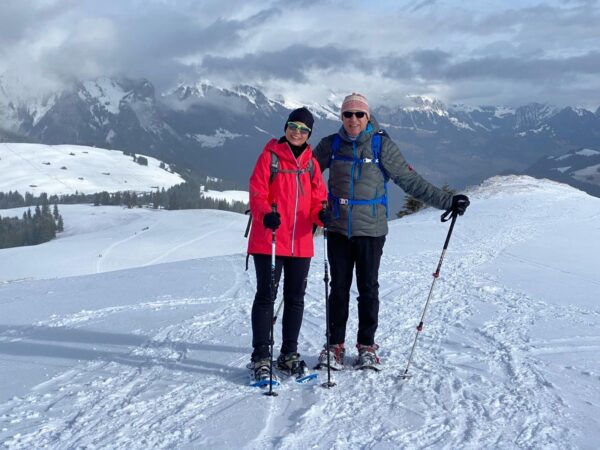DC Slovenia had recently the honor to speak to one of the most distinguished and prominent public figures in Slovenia – Marta Kos who in this interview speaks about many important moments in her rich career – from the days of being a exceptional atlete, journalist to diplomat an a politician.
Marta Kos is today, in so many ways, a role model for many women and the one who, together with her ONA VE team plays a pivotal role in the women’s rights movement in Slovenia.

What is diplomacy according to you?
It is a special skill how to represent your own country in the best possible way; it is the ability to network with host country representatives and, above all, to know when to speak up and when not to.
What skills are most important for a diplomat?
A diplomat must be all-rounder, good communicator, and presenter, it must be curious and able to look for new connections to the host country. As ambassador he/she must be a good leader – especially at the diplomatic missions of the small countries- and able to set the priorities well. And very important: he/she should not behave as too important or even haughty.
When one comes to a foreign country as a diplomat how do those first days in a new country look like; what is a first thing you notice/look for?
For the ambassador: It’s very important to connect with your team. The fluctuation of the employees at the diplomatic mission is very high, therefor it is very important for taking care of the good spirit on one hand and getting the job done on the other.
For all the diplomats: you have to find out who are the people in the host country you would need at most to talk to. It has to be clear, what are your tasks and jurisdictions.
And of course, you need to make life as normal as possible for your family and your family members. The more you can do that, the less guilt you will feel about neglecting them because of your work.
“In my opinion, Slovenia offers diplomats a high quality of work and life”
You have contacts with diplomats in Slovenia. How do the diplomats you meet describe their life here?
Yes, I have contacts with diplomats here and I love it very much. It is so valuable to learn about their views on Slovenia and what is happening here. And to find ways to work with them. With our ONA VE Association, we are doing a great job on this and we have organized quite a few joint events, some of them very high-profile.
Those diplomats whom I have closer contacts with are very fond of Slovenia. Some have already had to leave, others will have to leave soon, but all have mixed feelings about leaving. They are grateful to have been able to do their work in a good and open environment, to live in a beautiful countryside where everything is close, and people are easy to reach. On the other hand, they are sad that they have to leave. In my opinion, Slovenia offers diplomats a high quality of work and life.
Do you have any tips for them for the first days, months in Slovenia?
It’s hard to give advice because people are different. If I could give them some, I would say to get to know the Slovenians with whom they will have to work the most; to connect with other fellow diplomats and ask them for some useful advice and, above all, to get to know people outside the diplomatic circles, because that can make their lives very interesting.
Do you miss being a diplomat?
I don’t miss being a diplomat, but I miss the colleagues we became close to, but now live in different parts of the world. And I especially miss Berlin, which is a very special place, where you always have the feeling that everything you do is possible.
Is diplomacy only when you are an ambassador?
Not at all. Especially nowadays, when we are much more connected than in the past and when practically anyone who advertises through modern media, especially social media, can promote their country. Or, of course, to its detriment. Diplomacy in the broadest sense of the word is, of course, the successes of our athletes, Slovenian cuisine, our wines and the achievements of Slovenian artists and companies.
What is it like to live and work in two locations, Switzerland and Slovenia?
Very different, but everywhere dynamic in its own way. I learn a lot from the Swiss, their way of life and especially the way the political system works. From a young age, they are brought up to look after themselves, to know that the state will come to their aid, if necessary, but first and foremost they have to look after themselves. In Slovenia, and this is my opinion, we still rely too much on the state to do something for us all the time. In Slovenia, we have a better system of childcare up to school entry, which makes it much easier for women to work. And in Switzerland, I love their transport infrastructure and I am a big user of public transport. I think that it is because of its extremely well-developed infrastructure that Switzerland is such a very developed and rich country.
Why do Slovenians appreciate Switzerland so much and what is it that makes them feel better there than in Slovenia?
It’s hard to speak for Slovenians in general. It is true that Switzerland has always been a concept of something good. Indeed, in the former common state of Yugoslavia and for some years after independence, it was often said that Slovenia wanted to become another Switzerland. Probably because of the prosperity and the good salaries. And also, the orderliness of the various social systems.
Personally, I like Switzerland because there is order and discipline, because you always know where you stand, because the national or cantonal authorities act as a real service to the citizens, because they have excellent public transport. For many people, the fact that salaries are high means a great deal, even though, on the other hand, the cost of living is also high. I also love nature and the Swiss mountains, and I am happy that I have already climbed one four-thousand-foot mountain.

What do you think is better in Switzerland, and what do you miss when you are there?
I have already mentioned what I think is good about Switzerland. What I miss is the warmth between people, meeting friends just for coffee – the Swiss don’t know the concept of going for coffee, the spontaneity and honesty and openness between people. That is why I love to come to Slovenia.
Stay tuned for DC Interview – Marta Kos, part 2 about gender equality and Ona Ve organisation, coming next week, Monday, April 22nd!